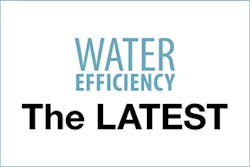Water Environment & Reuse Foundation Awards Research Contract to Measure Pathogen Infectivity
The Water Environment & Reuse Foundation (WE&RF) recently awarded a contract to the University of Michigan to begin research on Molecular Methods for Measuring Pathogen Viability/Infectivity (Reuse-15-07). The project will address key gaps in pathogen monitoring methods by incorporating a number of innovative approaches, particularly focusing on norovirus. Current methods to test for norovirus in wastewater are inefficient and costly. This proposed method offers advantages over culture-based monitoring practices:
Shorter time requirement – Traditional culture methods take three or more days. This method can be executed over a 12-24 hour timeframe including sampling, sample enrichment, RNA extraction, PCR analysis, and data analysis.
Lower costs – Current pathogen detection requires instrument acquisition, maintenance costs, as well as specialized staff with particular skill sets. This process can easily be standardized so minimal training is required to complete.
Improved sensitivity – PCR has a high specificity because it is designed for the genetic code of a specific pathogen, rather than culturing assays that read low numbers of infectious units.
The desired project outcomes will include the validation of a new rapid digital PCR (polymerase chain reaction) method for tracking norovirus and enterovirus removal that will be calibrated with culture data. As part of the validation process with matrices from treatment plants, norovirus disinfection curves will be established and norovirus enrichment methods will be developed.
The project is expected to be completed in 2018.
